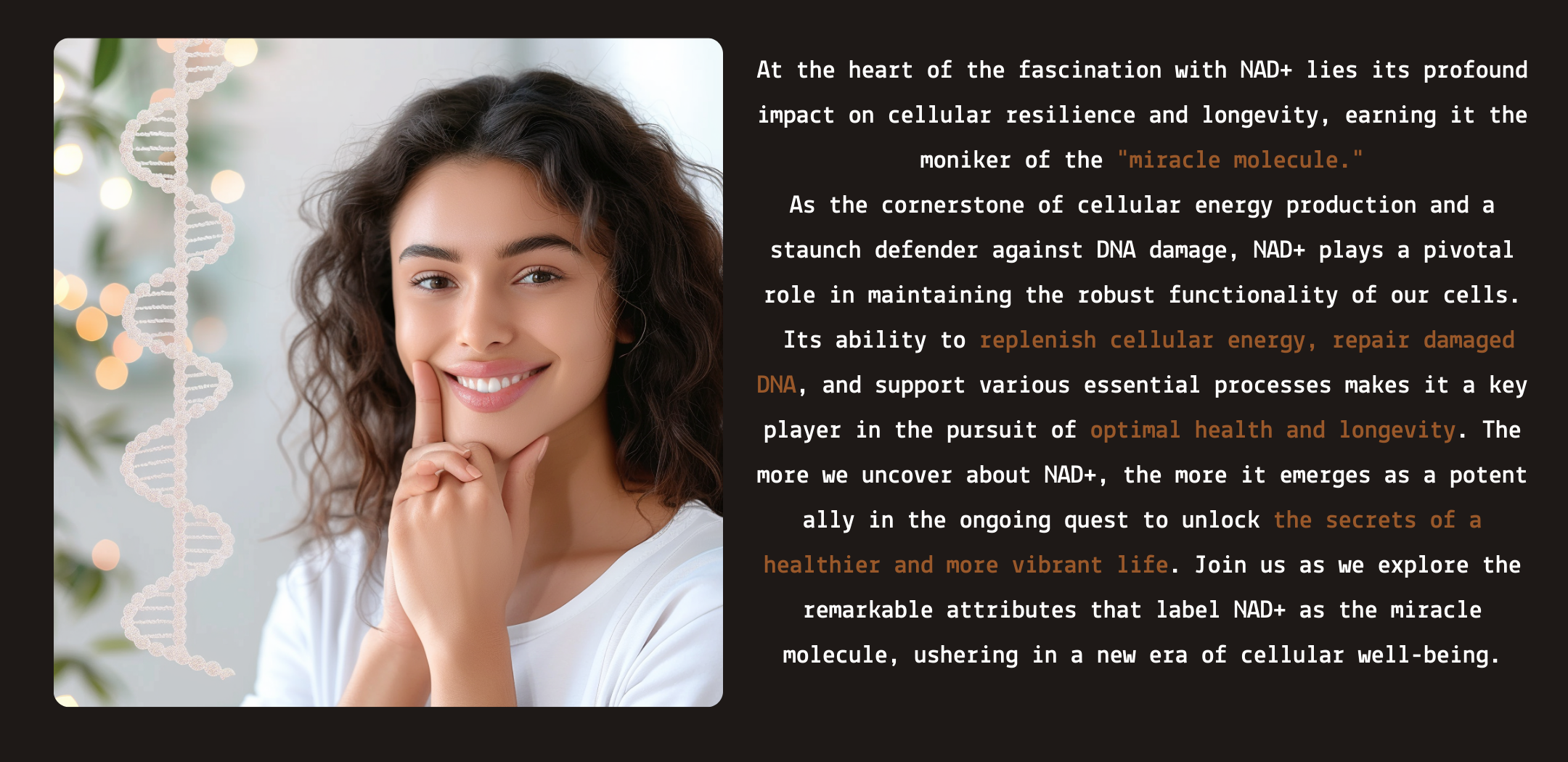




NAD+ FAQs
NAD+ stands for Nicotinamide Adenine Dinucleotide, a coenzyme found in every cell of the body that plays a crucial role in energy production.
NAD+ is essential for various cellular processes, including energy metabolism, DNA repair, and maintenance of cellular health.
NAD+ supports mitochondrial function, promotes DNA repair, enhances cellular resilience, and contributes to overall cellular health and longevity.
Aging, stress, poor diet, and certain medical conditions can contribute to NAD+ depletion, leading to decreased cellular function.
Lifestyle changes, such as a healthy diet, regular exercise, and proper sleep, can support NAD+ levels. Additionally, NAD+ supplementation may be considered.
NAD+ supplementation is associated with increased energy levels, improved cognitive function, enhanced exercise performance, and potential anti-aging effects.
NAD+ is generally considered safe when used appropriately. It is a naturally occurring compound in the body, and adverse effects are rare.
While some foods contain precursors to NAD+, such as niacin, getting sufficient levels solely from diet can be challenging. NAD+ supplements are a more direct approach.
NAD+ can be administered through intravenous (IV) infusions, oral supplements, or other forms, depending on the specific needs and preferences of the individual.
Individuals experiencing fatigue, cognitive decline, or seeking overall wellness and longevity may consider NAD+ therapy. It’s advisable to consult with a healthcare professional before starting any supplementation regimen.
